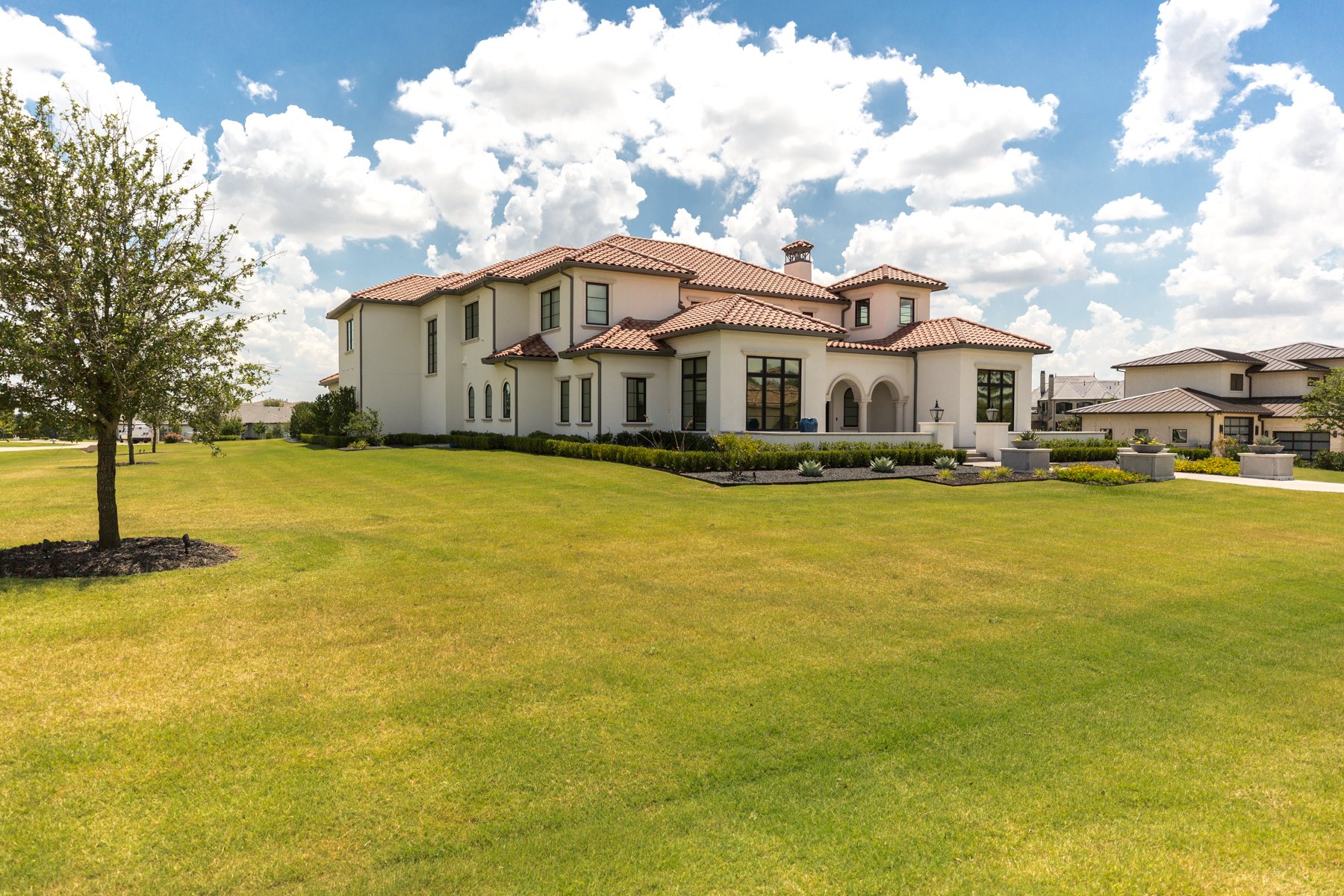
If you’ve ever looked out at your lawn and observed that the grass is different colors, you aren’t alone. It’s actually quite common for a lawn to have different shades of green. However, that’s not to say that it’s something you like. Uniformity of color is important to a lot of people when it comes to having a lawn that they’re proud of.
In this article, we’ll talk about why some grass is light green and some is dark green—and what you might be able to do about that color variation.
First and foremost, you want to understand why the lawn has different shades of green in the first place. Only once you figure out why there is variation in its color can you start to do something about fixing it.
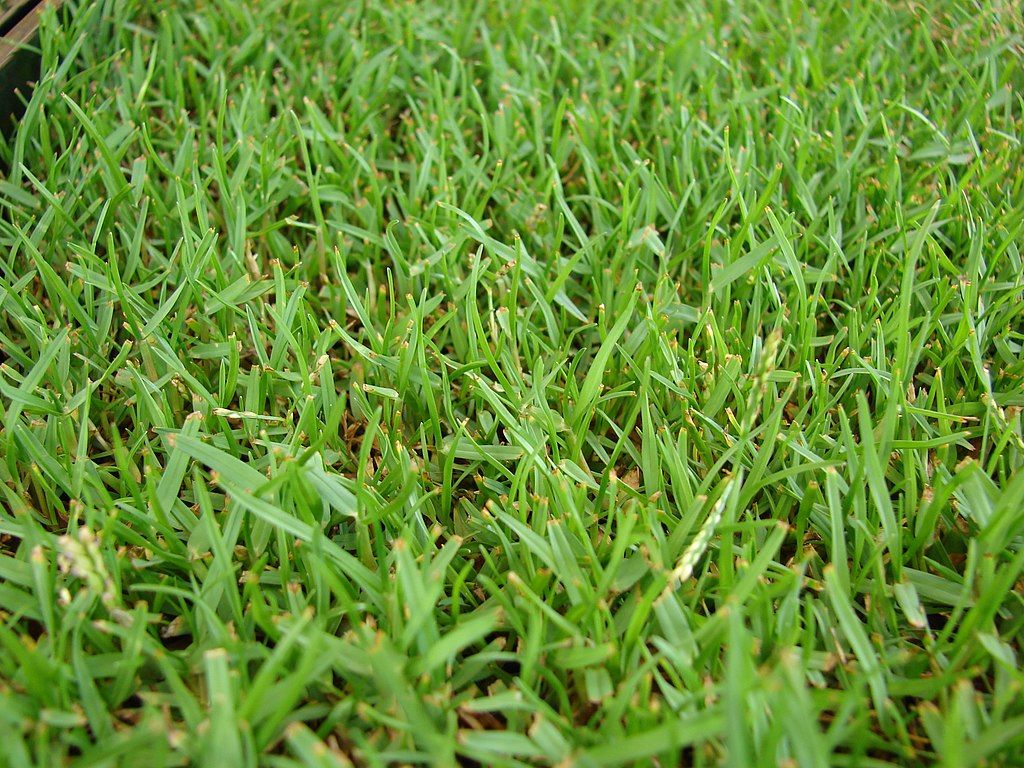
We’ll talk about the various reasons why this occurs but keep in mind that quite often, it’s more than one of these issues occurring at once. The reason why your lawn has different shades of green in the front yard might be entirely different from the reason why it has various shades in the backyard. Or even in the same area, multiple issues could be at hand.
Here are some common culprits.
Here in North Texas, most of the yards that we work on have multiple grass types growing. It’s quite common for homeowners to start off with one grass type, realize it’s not performing optimally in certain areas, and then add something new. This can make the lawn stronger and perform better in trouble spots (such as shade), but it can also lead to it being a lawn that has different shades of green.
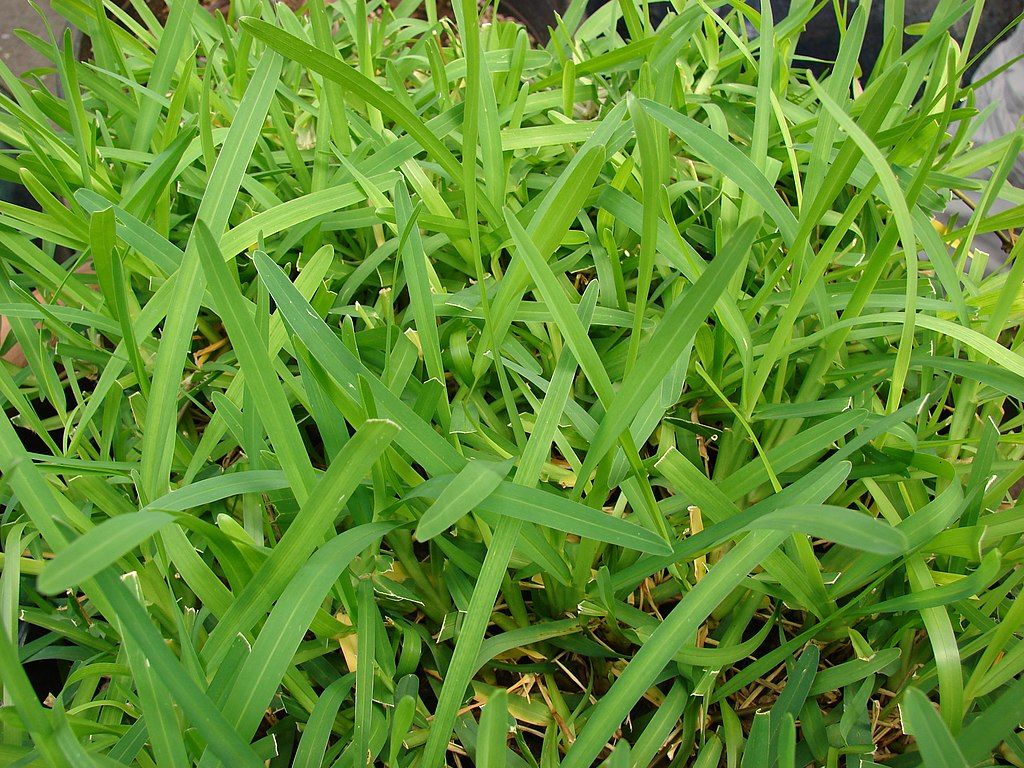
It’s important to remember that a lawn likely doesn’t have uniform conditions throughout the entire property. There might be zones where the soil is much higher in quality than others and in these spots, the grass is going to be green and thriving.
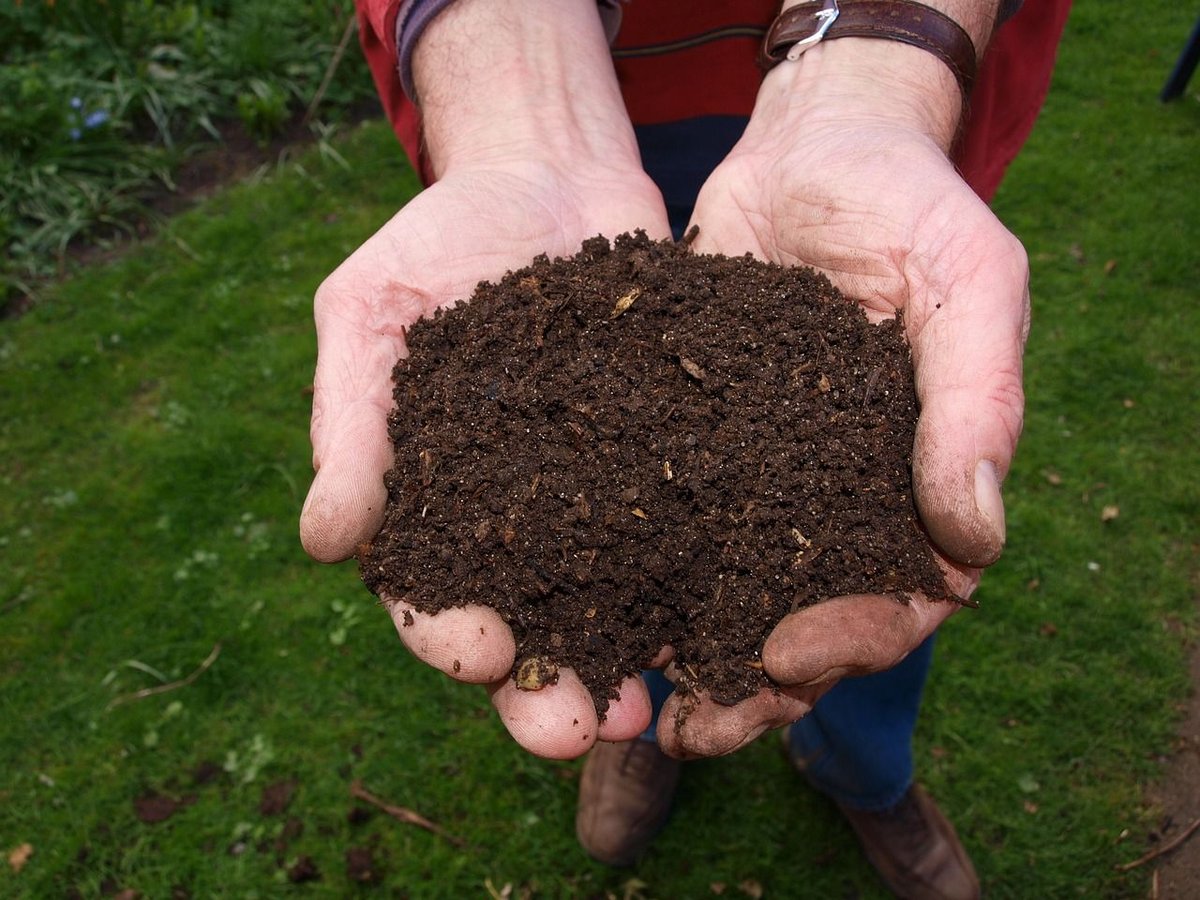
This sometimes occurs when a change is made to the yard. For instance, perhaps you had a swimming pool added and some excavation was performed. If lower quality soil was added into the dug-up areas, it might have lost nutrients.
If the grass is different colors in different spots of the lawn, it could also be related to a drainage or irrigation issue. If water isn’t properly draining in certain parts of the yard, the soil can become waterlogged and it can prevent oxygen and nutrients from getting down to the root zone.
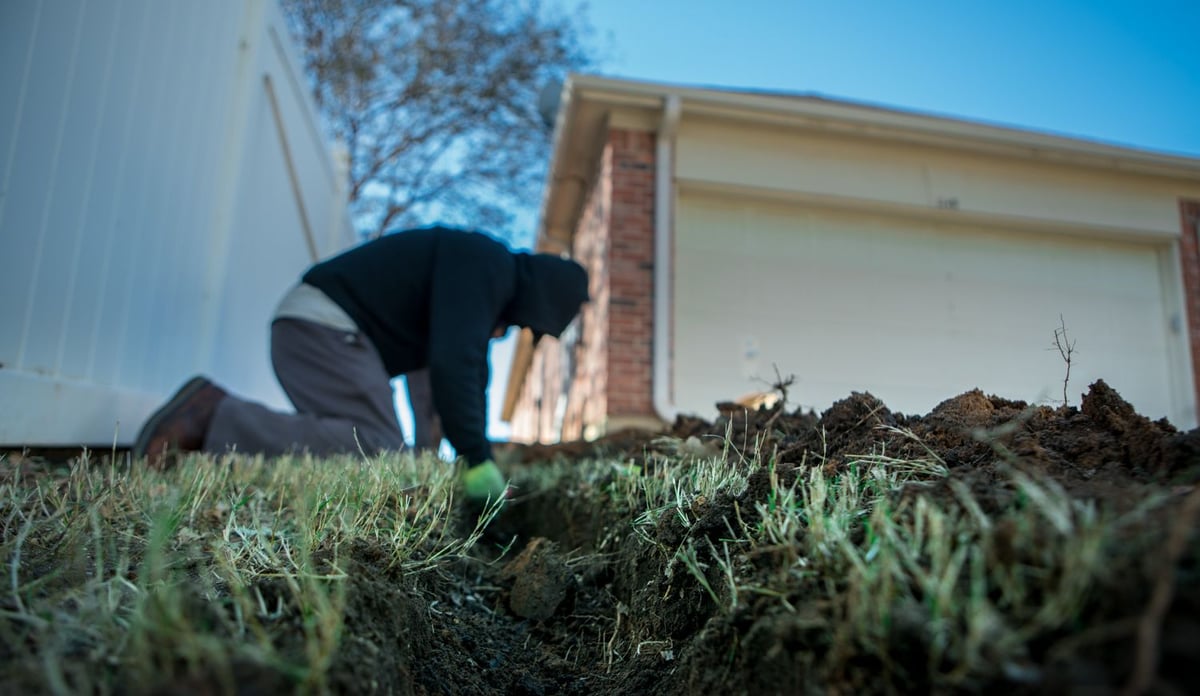
Similarly, some yards have septic systems and many homeowners notice a difference in grass color over the septic system area. Sometimes very bright green grass over a septic tank can actually indicate early signs of trouble with the system and is worth looking into.
Irrigation leaks can also lead to changes in grass color. If some areas of the property are receiving more water than others, this can mean that some grass is light green and some is dark green.
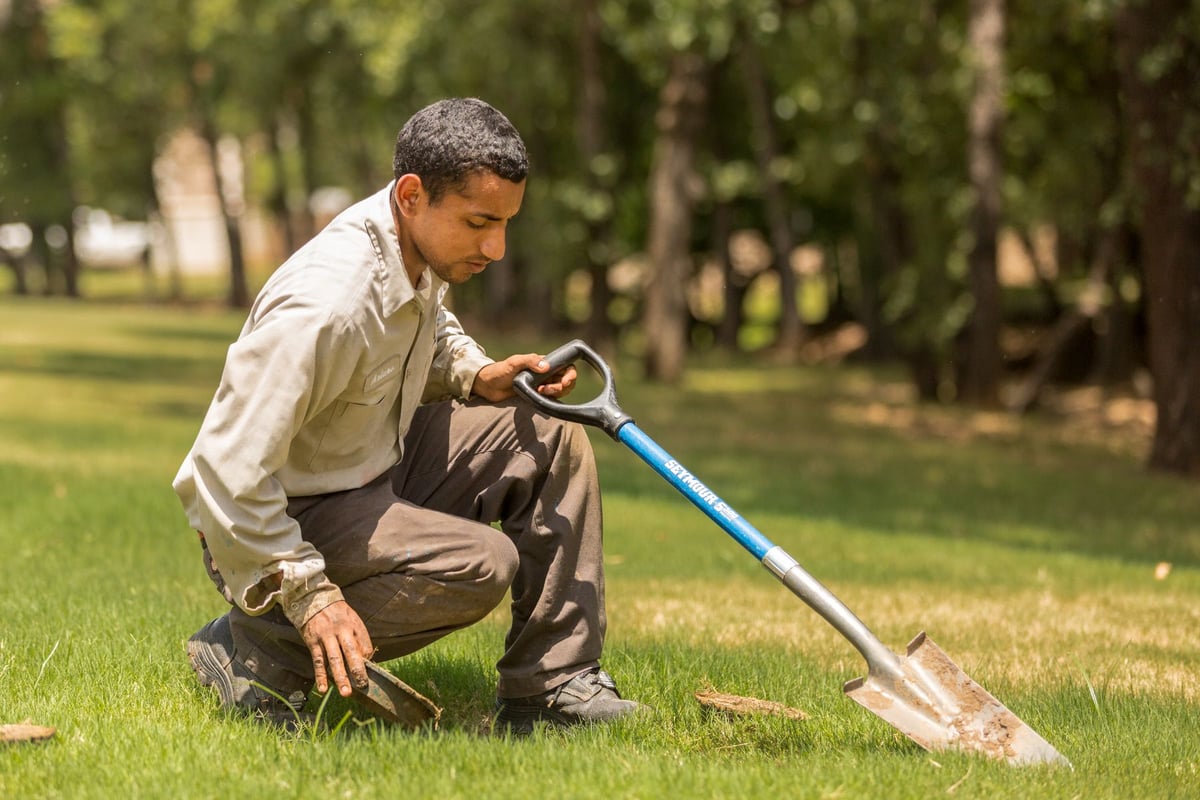
It’s also possible that an irrigation system was not installed properly. If you don’t have good head-to-head coverage, there could be areas of the lawn that aren’t receiving enough water. This sometimes leads to circular areas of greener grass.
Since lawn fertilization is what helps to make grass green, if some grass is light green and some is dark green, it may be that it’s not properly fertilized. This sometimes happens if homeowners buy a bag of fertilizer and just toss some down in the yard. It is possible that you may not get good, even coverage from high-quality products.
But it could also be that your lawn care company is cutting corners or skimping on materials.
There also happens to be a lot of grassy weeds in North Texas which grow in clumps and make your lawn appear as it has various shades of green in it. This can certainly contribute to it appearing that the grass is different colors.
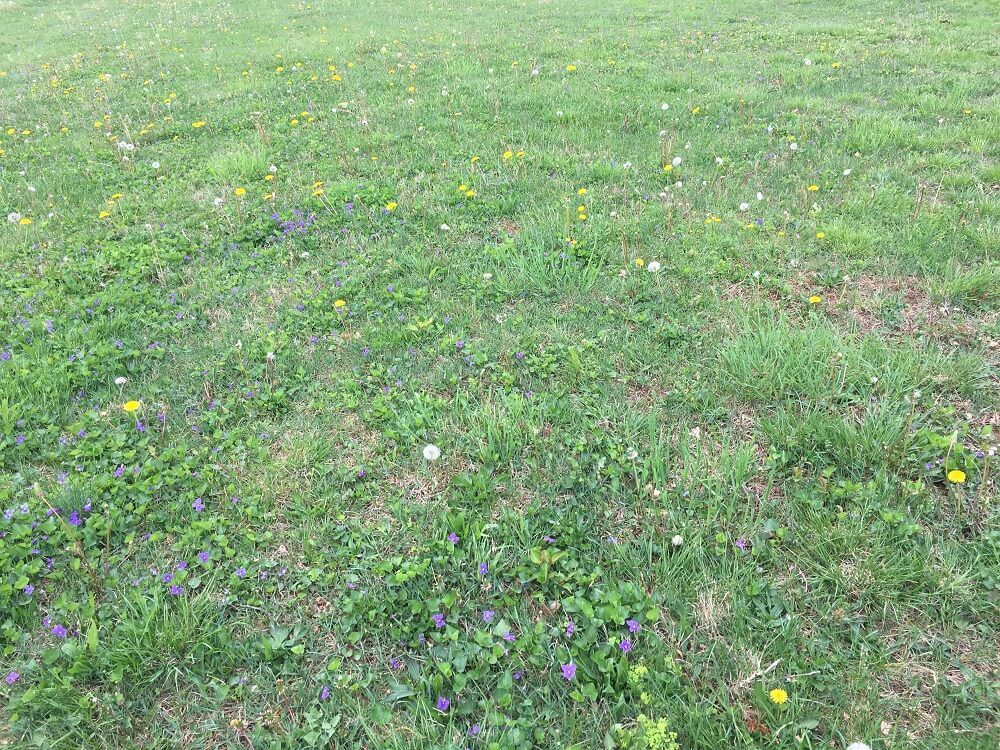
As we mentioned, it is very likely that you have not one, but multiple issues at hand if your lawn is different colors. The key is to properly diagnose what’s going on so that you can implement the best solution. That solution will obviously be dependent upon what’s causing the differences in color.
It is highly beneficial to have a lawn care professional make the diagnosis so that you get the right solution underway. This is where it is ideal to hire a company that handles multiple property services so that you ultimately end up with the right answers.
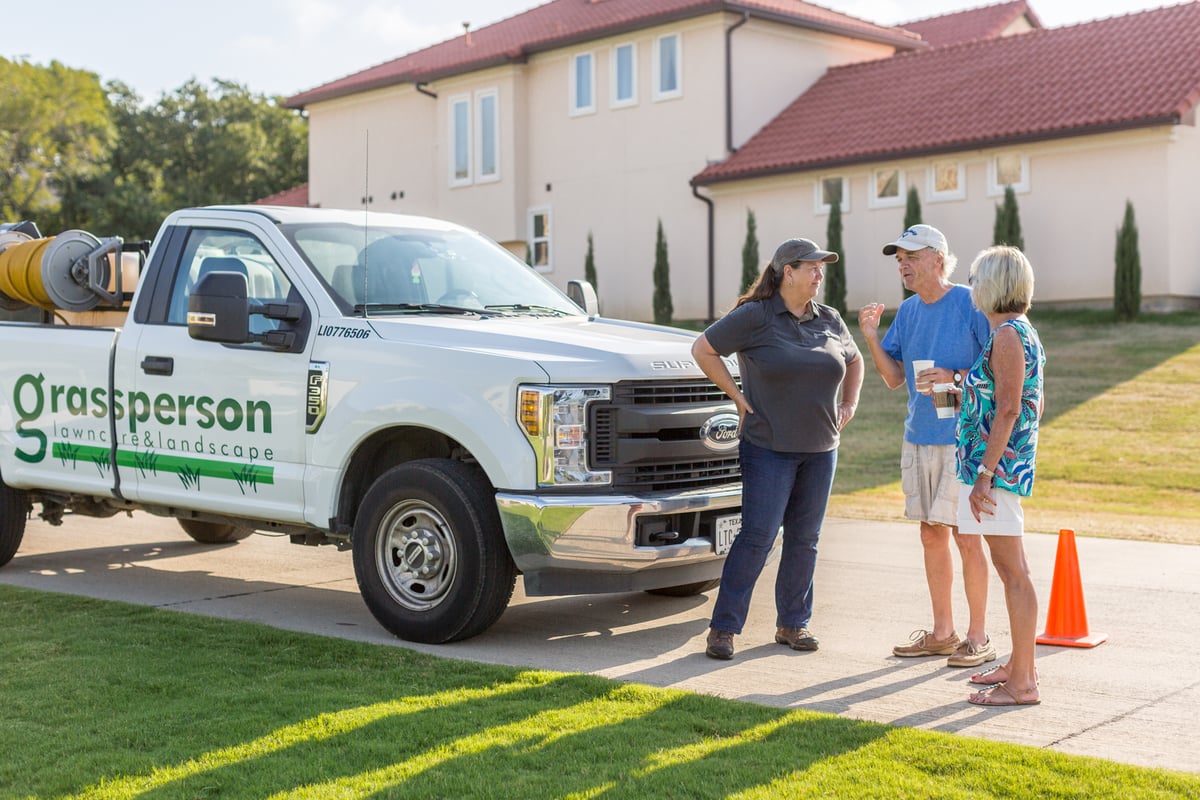
If you bring in a lawn fertilization company for a lawn that isn’t uniformly green, they’re just going to try to fix it with fertilizer. Or, if you bring in a company that solely handles irrigation, they’re going to tell you it’s an irrigation issue.
But if you bring in a company that can handle it all: lawn fertilization, irrigation, drainage issues, weed control, and more—then they’ll be able to accurately diagnose exactly what’s going on and get the proper solution underway.
We understand that lawn problems like this can be frustrating, but with the right lawn care professional on your side, you can feel confident that the issues will be appropriately resolved. Soon, you can get your lawn back on track without having to worry about what’s causing problems.
You’ll gain peace of mind that your lawn is getting everything that it needs to perform its best and you’ll be proud to show it off as the best lawn on the block.
Are you ready to feel confident your lawn is getting everything it needs at your Flower Mound, Highland Village, or Lewisville, TX home? Get a free quote and then enjoy the best property on the block without the worries!
Image Source: zoysia grass, st.augustine grass, compost,
These Stories on Lawn Care